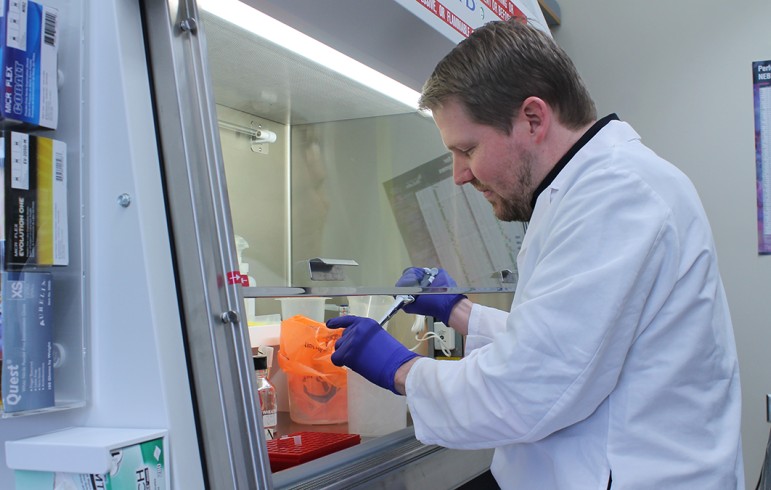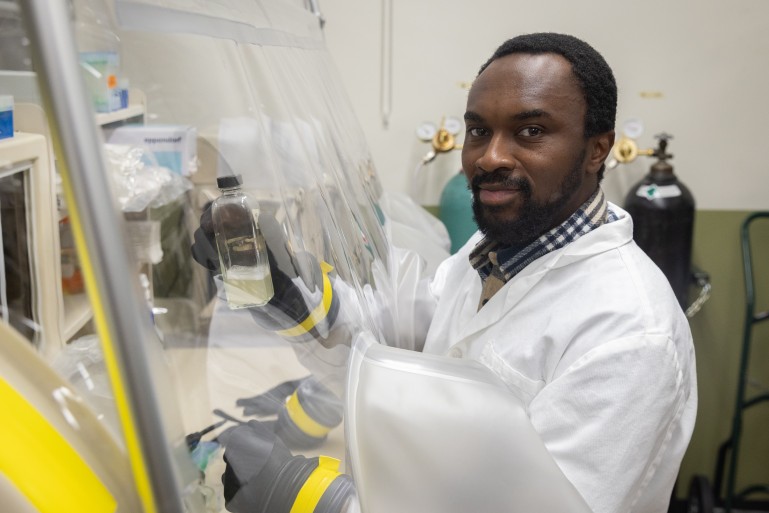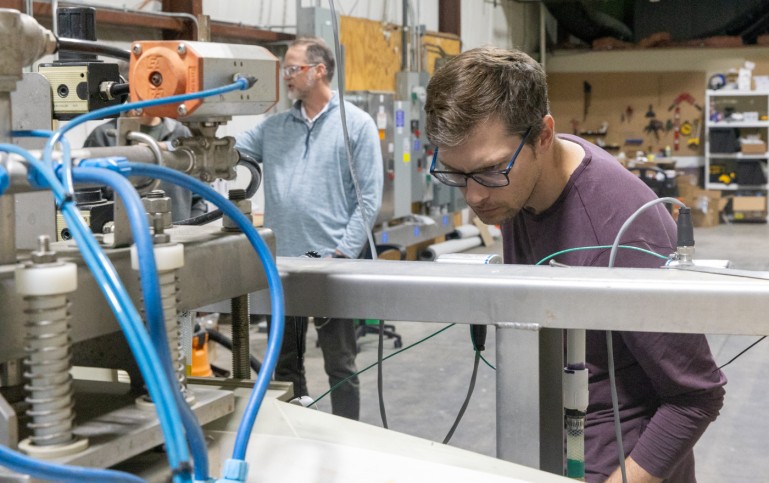University of Wisconsin–Madison bacteriology professor Timothy J. Donohue has been selected as the next Ira L. Baldwin Professor in Bacteriology, effective July 1. The five-year professorship provides $20,000 annually to support scholarly activities.
In the not-too-distant future, flexible electronics will open the door to new products like foldable phones, tablets that can be rolled, paper-thin displays and wearable sensors that monitor health data.
The Holtz Center awards this grant each year to a thematic research cluster that intends to advance research, teaching, and outreach on interdisciplinary topics within science and technology studies.
One of the slowest and most expensive steps in turning biomass into chemicals and other useful products is separating the compounds of interest from the mixture of liquid solvents and other byproducts made during processing.
If you’ve ever tried to grill a medium-rare steak and ended up with an expensive piece of rubber, you know it’s not easy to gauge the temperature of an object just by measuring its surface.
Many of us fastidiously clean and sort our yogurt containers, milk jugs and mountains of other plastic waste each week, getting that packaging ready for the recycling bin.
Media coverage of WEI this month focused on solving the issue of water contamination, creating yeast that is more equipped to produce biofuels, and employing more sustainable methods of agriculture.



